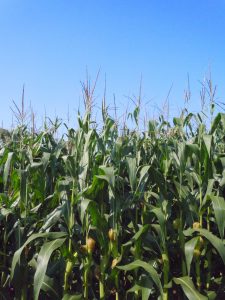 If the Environmental Protection Agency (EPA) has its way, it would ban atrazine, costing Wisconsin corn growers income and reducing sustainable farming practices, according to a group of Wisconsin agriculture organizations.
If the Environmental Protection Agency (EPA) has its way, it would ban atrazine, costing Wisconsin corn growers income and reducing sustainable farming practices, according to a group of Wisconsin agriculture organizations.
In June, EPA issued a draft Ecological Risk Assessment, recommending reducing the level of atrazine nearly three times less than current levels, and seven times less than scientific studies have indicated as acceptable. The farm groups said these levels would effectively ban the use of atrazine in nearly 100 herbicide mixes. Atrazine is an herbicide used for weed control in growing corn and other crops.
The Wisconsin Corn Growers Association, Cooperative Network, Wisconsin Pork Association, Wisconsin AgriBusiness Association, Midwest Food Processors Association, Dairy Business Association, Wisconsin Soybean Association, Wisconsin Farm Bureau Federation and Wisconsin BioFuels Association are urging farmers to contact EPA at www.fightEPA.com to reconsider its assessment based on sound science.
“For more than 50 years, atrazine has been a safe and effective crop protection tool to control the spread of resistant weeds and improve yields, and has been a valuable tool in sustainable farming practices,” said Casey Kelleher, president of the Wisconsin Corn Growers Association. “EPA’s action would drive up the cost of production to Wisconsin corn growers and reduce our yields.”
“It appears that EPA has arbitrarily discounted 7,000 rigorous, high-quality scientific studies while compromising its own high standards,” said Bill Gnatzig, president of the Wisconsin Pork Association. “Studies suggest farming without atrazine could cost corn farmers up to $30-59 per acre in yield loss and added tillage, while negatively impacting water and nutrient management, which are key concerns of our state’s pork producers.”
“Atrazine plays an important role in conservation tillage, a farming practice that reduces soil erosion and runoff,” said Tom Liebe, president and CEO of the Cooperative Network “An atrazine ban would require more soil tillage to control profit-robbing weeds and will be a net-negative for the environment.”
The farm groups said EPA’s draft assessment represents a terrible precedent, claiming EPA has not based its assessment on sound science, and ignored its own Science Advisory Panel’s recommendations. Because of this flawed methodology, according to the ag groups, if EPA’s recommendations in this risk assessment stand, it will effectively ban the use of atrazine.
Farmers have until October 4 to comment on EPA’s proposed atrazine risk assessment. Farmers can comment at www.fightEPA.com.


Leave a Reply